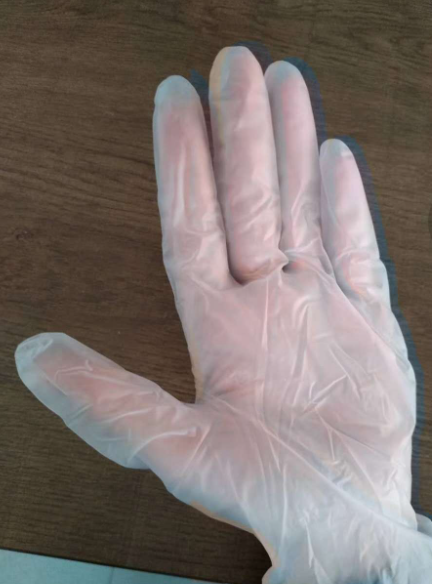Vinyl gloves have been one of the most commonly used disposable gloves, both domestically and industrially, for decades. They are affordable, versatile, and suitable for use in a range of applications. Of course, safety gloves must do much more than simply protect the hands from contaminants. Wearing gloves is a fact of life for many workers who come into contact with chemicals, pathogens, and other potentially hazardous materials, as well as for workers who handle food products.
Here, we outline the differences between vinyl gloves and other popular glove materials and detail some of the most common applications for vinyl gloves, to help you choose the right disposable vinyl safety glove for your workplace.
What are disposable PVC gloves?
Disposable vinyl gloves are synthetic disposable safety gloves made using PVC (polyvinyl chloride). In order to make the glove material more flexible and suitable for use as a safety glove, a plasticiser is added during the manufacturing process. As PVC is an inexpensive material, vinyl gloves are one of the most affordable disposable safety gloves on the market and are often used in environments where everyday use is required, and a high turnover of gloves is expected.
Their PVC and plasticized material make disposable vinyl gloves waterproof and resistant to some chemicals, including detergents, dyes, and low-level corrosive materials. They are generally available in both powdered versions (which can allow for easier donning and removal) and powder-free versions (where powder may contaminate other materials), depending on the manufacturer.
As is the case when selecting any safety glove for the workplace, it is important to carefully consult the manufacturer’s specifications and guidelines for the product, to determine whether it is suitable for the task. Vinyl gloves are not recommended for use in environments where contact with strong chemicals or fatty foods and oils is expected.
Applications for disposable vinyl gloves
Vinyl gloves are found in many workplaces and domestic environments, and are an incredibly popular choice for low-risk day-to-day activities, due to their low cost and low-risk protective properties. Some of the most common applications for disposable vinyl gloves include:
- Housekeeping: In industrial housekeeping situations, vinyl gloves help to protect workers’ hands and prevent cross-contamination, particularly in care and assistance roles where laundry and bed linen (which may be contaminated by body fluids) is involved.
- Food preparation: Vinyl gloves are commonly used where food safety is a factor, and protect against contamination and cross-contamination of food and other materials in food preparation environments. For those involved in preparing food and handling cash, for example, the quick disposal of these low-cost gloves is ideal for preventing cross-contamination. Unigloves vinyl gloves are certified for use with food. However, vinyl gloves are not suitable for more than the briefest contact with fatty and oily foods.
- Hairdressing: Vinyl gloves are popular for short-term use when it comes to dying and treating hair, either at home or in salon environments. For exposure to stronger chemicals, however, nitrile gloves should be considered.
- Cleaning and janitorial: For household and industrial cleaning applications in low-risk environments, vinyl gloves are a popular choice for protecting the hands for short periods of time, where exposure to high-risk chemicals is not expected.
Why choose disposable vinyl gloves over latex or nitrile gloves?
Disposable vinyl gloves are versatile and inexpensive gloves used in a huge variety of applications. Typically, vinyl gloves are neither as strong nor as resistant to chemicals and other hazards, as latex or nitrile gloves. However, they are still a preferred option for many workplaces and even in domestic applications. As vinyl gloves are latex-free, they are a popular alternative to latex gloves, alongside nitrile gloves, where latex allergies have been deemed a risk to workers or those they encounter.
Vinyl gloves are also typically less robust than their latex or nitrile counterparts when it comes to puncture and tear resistance, which is why they are rarely used in high-risk medical environments or where workers are likely to be dealing with corrosive or otherwise hazardous materials.
Despite their lower levels of protection in high-risk environments, disposable vinyl gloves are still a suitable and incredibly popular glove for many situations. They are also an excellent protective measure for preventing contamination and cross-contamination in food preparation situations. Furthermore, as vinyl powder-free disposable gloves are latex-free, chemical accelerator-free, and free from powder, they are a great alternative for those suffering from Type I or Type IV skin allergies.
Fengwang Machinery has a lot of disposable PVC gloves. The epidemic situation is heartless, there is love in the world, the supply is sufficient, the price is close to the people! High-quality raw materials, to ensure the safety of gloves! Looking forward to our further cooperation!



